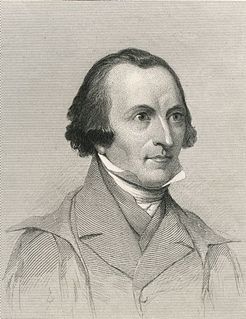A Quote by Ovid
It is the mind that makes the man, and our vigour is in our immortal soul.
Related Quotes
Growing up we were secular Jews, but what I got out of Judaism at that time in my life was questions. Everything was a question. "Dad, is there a heaven? Is there a hell?" You never could get an answer. That informed a lot of my reasons for getting into Scientology, because they had all the answers. They said I was not my body, not my mind. I don't have a soul; I am an immortal soul. I've lived many lives and I'll live endlessly into the future, and as an immortal soul I have no gender.
... even if Lucretius was wrong, and the soul is immortal, it is nevertheless steadily changing its interests and its possessions.Our lives are mortal if our soul is not; and the sentiment which reconciled Lucretius to death is as much needed if we are to face many deaths, as if we are to face only one.
An affectionate disposition not only makes the mind more peaceful
and calm, but it affects our body in a positive way too. On the
other hand, hatred, jealousy and fear upset our peace of mind, make
us agitated and affect our body adversely. Even our body needs peace
of mind and is not suited to agitation. This shows that an
appreciation for peace of mind is in our blood.
The commandment of God is, that we love Our Lord in all our heart, in all our soul, in all our thought. In all our heart; that is, in all our understanding without erring. In all our soul; that is, in all our will without gainsaying. In all our their ought; that is, that we think on Him without forgetting. In this manner is very love and true, that is work of man's will. For love is a willful stirring of our thoughts unto God, so that it receive nothing that is against the love of Jesus Christ, and therewith that it be lasting in sweetness of devotion; and that is the perfection of this life.
Think of a single word. We'll use soul as our example. How do you define soul? Is it the same definition I use? Can it ever be it? My soul is not your soul. Our souls, our definitions, are shaped by the singular and cumulative experiences in our lives, the emotional weight we attach to a concept forever locked in the space behind our own eyes.
Either we have an immortal soul, or we have not. If we have not, we are beasts,--the first and the wisest of beasts, it may be, but still true beasts. We shall only differ in degree and not in kind,--just as the elephant differs from the slug. But by the concession of the materialists of all the schools, or almost all, we are not of the same kind as beasts, and this also we say from our own consciousness. Therefore, methinks, it must be the possession of the soul within us that makes the difference.
We don't save our soul and leave our emotions and our feelings and our body and all the rest of it out. That's just a way of talking that emphasizes the soul is so fundamental that we can, in some cases, treat it as the whole person because it actually is the thing that integrates all of these aspects of the self and makes them work together. Now, I don't think we can find a passage in the Bible that says that. We have to read and study how it addresses the soul, and we then see that it is the deepest, most vital part of the human self.
Our thoughts are boundless, though our frames are frail,
Our souls immortal, though our limbs decay;
Though darken'd in this poor life by a veil
Of suffering, dying matter, we shall play
In truth's eternal sunbeams; on the way
To heaven's high capitol our cars shall roll;
The temple of the Power whom all obey,
That is the mark we tend to, for the soul
Can take no lower flight, and seek no meaner goal.
What we are today comes from our thoughts of yesterday, and our present thoughts build our life of tomorrow: our life is the creation of our mind. If a man speaks or acts with an impure mind, suffering will follow him as the wheel of the cart follows the beast that draws the cart. If a man speaks or acts with a pure mind, joy follows him as his own shadow.
Our actual lives, including our values, our social relations, our self-conceptions, and many of our concepts, are pervasively shaped both by the knowledge and by the fact that we will someday die - that we are subject to extreme temporal scarcity. There is no reason to think that, if we were immortal, the same things would continue to matter to us. We have little or no idea what, if anything, would matter to immortal beings, or even how such beings would think of themselves.






































